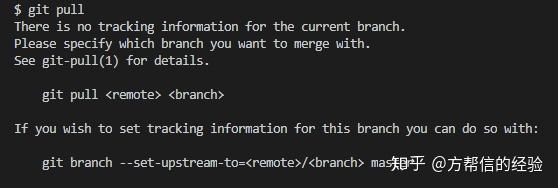

#Git set upstream url stackoverflow code#
Apt is still very trusting, and a malicious or compromised repo can bypass this measure easily because packages currently can run arbitrary shell code as root in their setup scripts.This should give you a key that apt will accept without conversion.To import a repo's key from a keyserver to a standalone file:.(Exporting them from that keyring is also possible, but the exact steps are left as an exercise for the reader.) You can then follow all the same steps above to set them up the safer way. If you already have keys in the /etc/apt/trusted.gpg keyring file beyond the official repo keys, this answer details the steps to locate and remove them.list files so each one has a signed-by field pointing to its own key.
#Git set upstream url stackoverflow update#

You can use apt-cache policy to inspect the current pin priorities, and if needed you can adjust pinning based on origin to achieve this effect. Apt's default pinning rules give higher priority to official distro repos, which (in conjunction with proper key management) offers some protection against third-party repos replacing distro-provided packages.

What we want to do instead is configure apt to accept signatures from a third-party repository only on packages being installed from that repository - no cross-signing. This weakens the assurance provided by the package signing mechanism against malicous packages being injected into the official Ubuntu mirrors network. This means that when installing any package from any repo (including the official distro repos), apt will happily accept the package being signed by any of those trusted keys (whether the key belongs to the repository the package is coming from or not). The problem is that any key you add to either of the above is completely and unconditionally trusted by apt. These two things are equivalent, and doing either one is a huge security risk.

The problem is not a question of appending a key to one big keyring file etc/apt/trusted.gpg vs manually putting single-key keyring files into the directory /etc/apt//. You need to know why apt-key add is deprecatedĪll of the answers so far work around the symptom ("Don't use apt-key add") but fail to address the actual problem that led to apt-key add being deprecated.


 0 kommentar(er)
0 kommentar(er)
